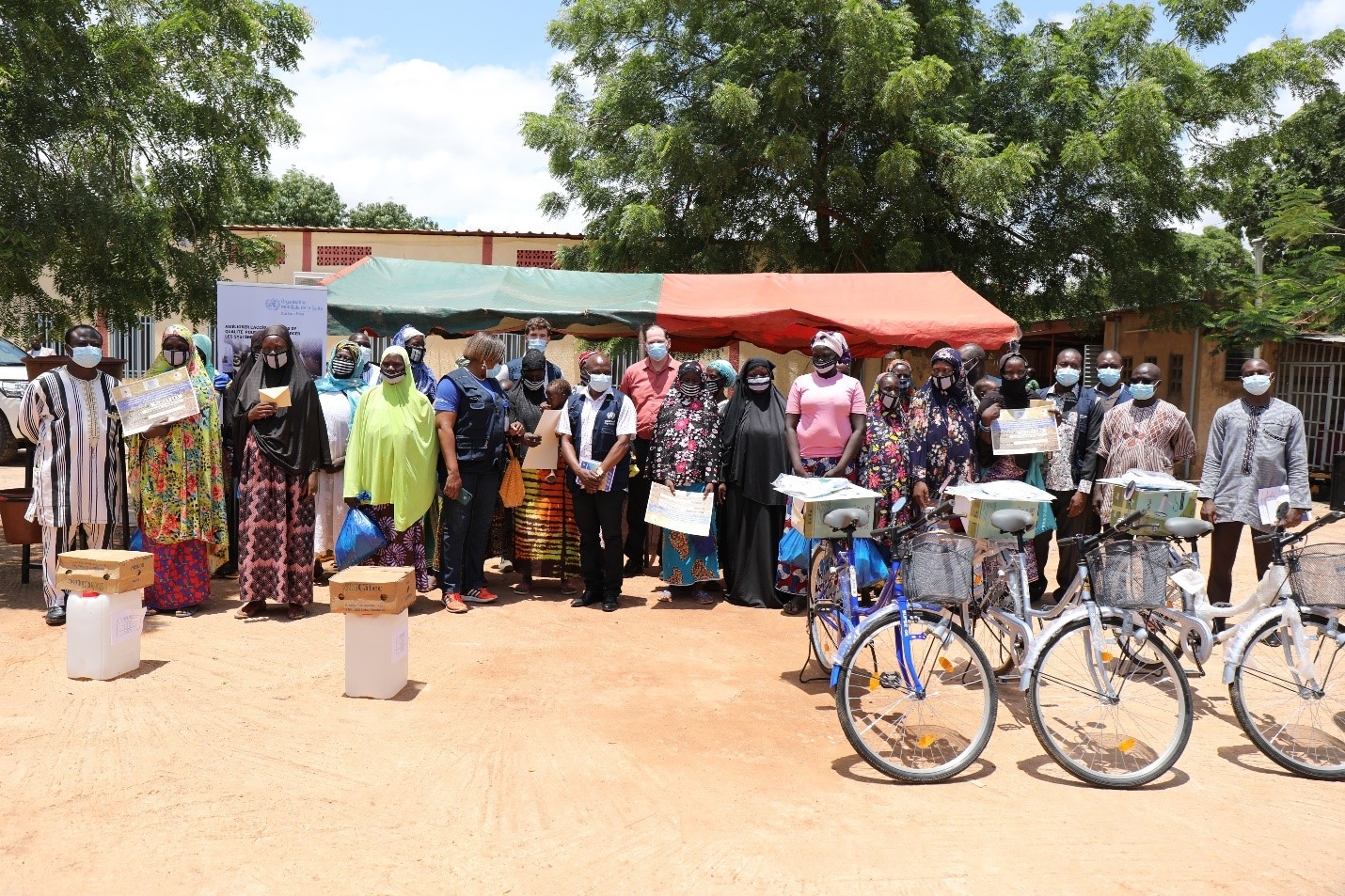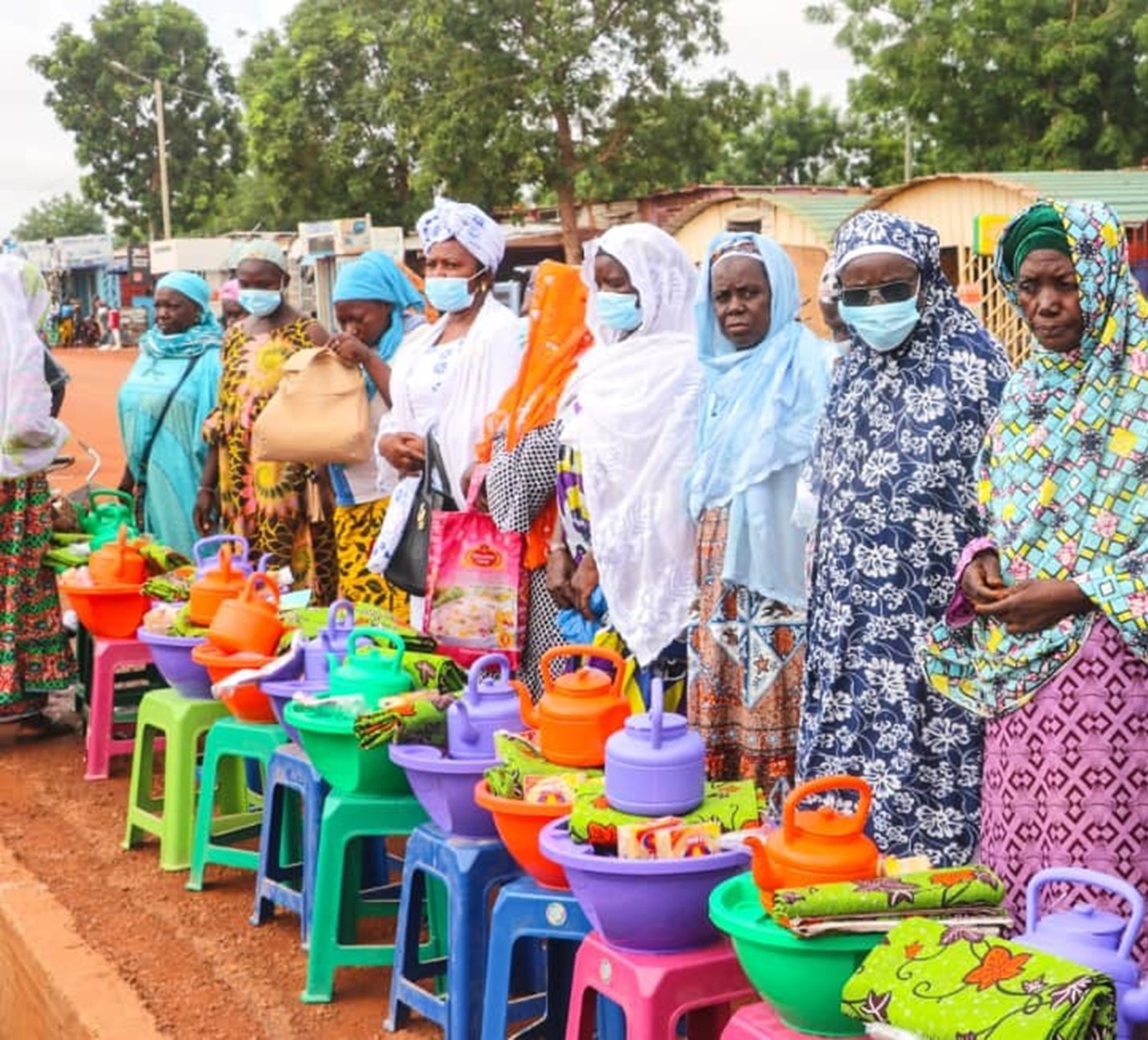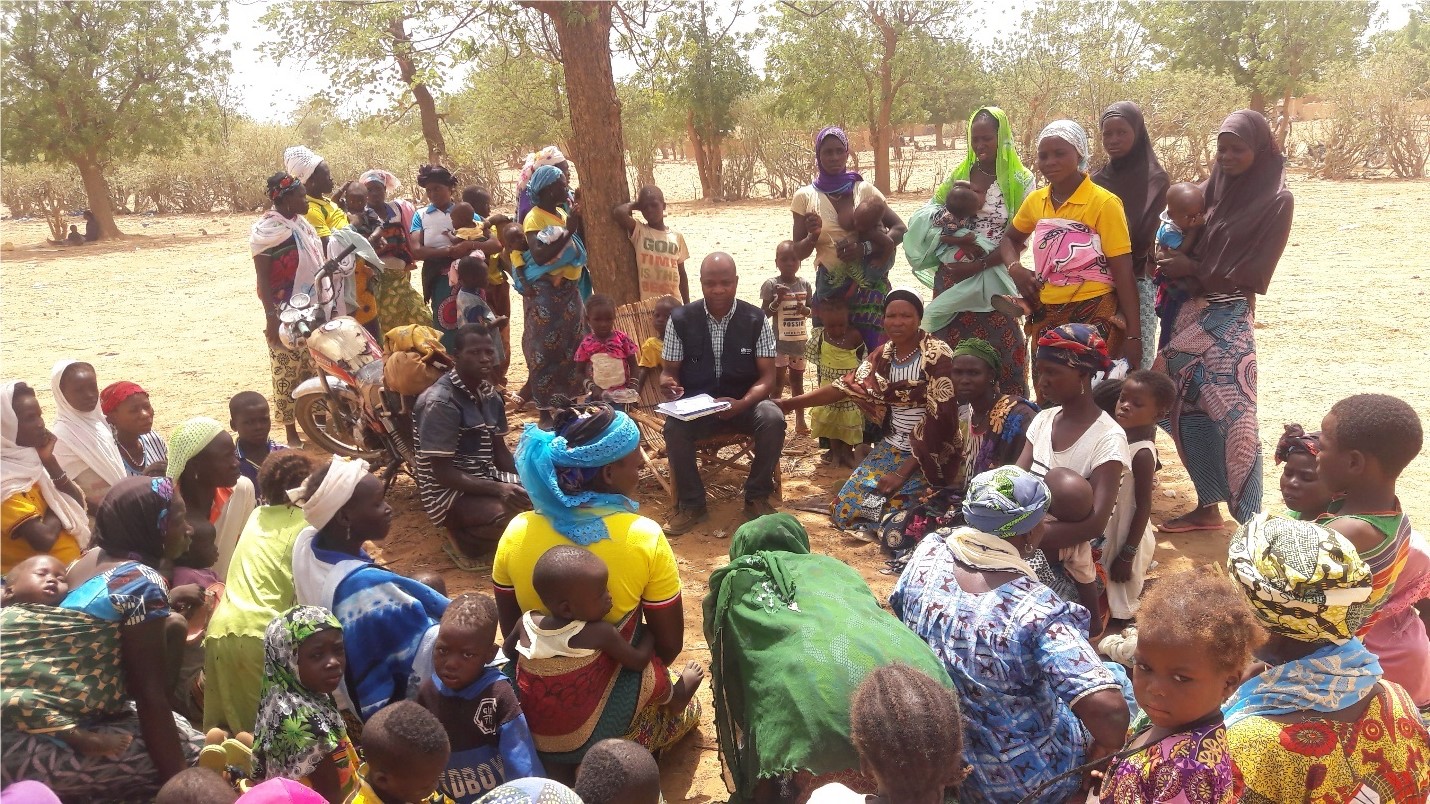Since 2015, Burkina Faso has been facing an unprecedented humanitarian crisis with serious repercussions for the civilian population. This crisis, driven by insecurity and exacerbated by climatic shocks, has led to forced displacements across all regions of the country. By 2020, over 1 million people, particularly women and children, were deprived of essential healthcare services due to facility closures, staff shortages, and limited resources[i]. Pregnant women faced unsafe delivery conditions, children missed critical vaccinations, and chronic illness patients experienced treatment interruptions. The COVID-19 pandemic further strained the fragile healthcare system, making access to life-saving support even more precarious[ii].

Photo credit: Burkina Faso Health Cluster
In response, the strengthening access to primary health care integrating sexual and reproductive health initiative was launched to bridge healthcare gaps, ensuring that the most vulnerable populations received the care they needed. Through the coordinated efforts and advocacy of the Health Cluster partners and WHO, donor funding was successfully mobilized, ensuring that resources where available to implement this initiative.
From November 2020 to September 2022, this initiative supported with CAD 2.236 million, funded by the Canadian Embassy in Burkina Faso, worked to strengthen healthcare systems in regions of the country most affected by humanitarian crisis, namely Sahel, Centre-North, North, and Boucle du Mouhoun regions. The goal was clear: to improve access to primary healthcare services and provide lifesaving support to those who needed it most. A key element of success was the Health Cluster’s coordination with humanitarian and development partners, ensuring the project was implemented efficiently and reached those most in need.
Access to healthcare starts with well-equipped facilities. Through this initiative, seven health centers and 24 laboratories across the four regions were equipped with essential medicines, medical-technical materials, and laboratory supplies. These improvements meant that more women could access antenatal care, childbirth in a clean and safe environment, and essential postnatal care, and more adolescents could receive essential reproductive health education and services.

Photo credit: Burkina Faso Health Cluster -A community event supporting efforts to share information on family planning and gender-based violence through local networks.
Healthcare professionals and community-based health workers play a vital role in ensuring that care reaches those in need. The initiative trained 371 Community-Based Health Workers to provide care, particularly for women and adolescents, strengthening local community networks, including women's groups, was also a priority. These efforts reached over 30,395 people, ensuring they had accurate information about COVID-19 prevention—an urgent concern during that period— along with available healthcare services, and reproductive health options.
Community engagement was a key part of the initiative. Women's groups and local leaders helped drive conversations about family planning and gender-based violence, two critical issues often overlooked in crisis situations. The initiative facilitated 57 group discussions to educate communities about reproductive health and rights and organized 13 awareness caravans, which travelled across the affected regions to provide information and connect people with essential services. Additionally, community referral networks were strengthened to support survivors of gender-based violence and ensure access to necessary health care and protection services.

Photo credit: Burkina Faso Health Cluster -Alain Kapete Ngoy, Health Cluster Coordinator conducts a rapid evaluation.
Beyond immediate healthcare needs, the project also strengthened disease surveillance and emergency response mechanisms, ensuring the country's health system was better prepared for future crises. Healthcare workers were trained on integrated disease surveillance and response, using the WHO SIMR (Integrated Disease Surveillance and Response) guide, and regional disease surveillance systems were enhanced to detect and respond to epidemic-prone diseases like malaria, tuberculosis, and HIV, as well as non-communicable diseases such as mental illness. Throughout the project, the Health Cluster played an important role in monitoring activities in the field, helping to track progress, identify challenges, and ensure healthcare services effectively reached affected and hard to reach populations.
The results of this initiative extend beyond number—communities are now better equipped to handle epidemics and pandemics, with strengthened local capacity and ongoing awareness efforts. Trained local actors remain engaged in disease prevention, gender-based violence response, and health promotion. Hygiene awareness campaigns also persist, using megaphones and bicycles to reach remote areas. This progress is sustained through continued funding, with partners like CERF and the Regional Humanitarian Fund for West and Central Africa (FHRAOC) ensuring that local actors can maintain and expand these efforts. Moreover, the initiative has been fully integrated into the national health system. From the outset, it aligned with national programs, training health workers in disease surveillance, GBV management, and safe childbirth. These activities remain embedded in healthcare facilities and communities, backed by the Ministry of Health, WHO, and humanitarian partners.
This World Health Day 2025, under the theme "Healthy beginnings, hopeful futures", the work done in Burkina Faso is a testament to the power of community-driven healthcare solutions. With continued support and collaboration, the path to a healthier future for women, children, and adolescents remains strong.
[i] Burkina Faso : Aperçu des Besoins humanitaires 2020 (mai 2020) https://bit.ly/4jcNl8N
[ii]Burkina Faso Plan de Réponse Humanitaire 2020 révisé (août 2020) https://bit.ly/41WRCHP
